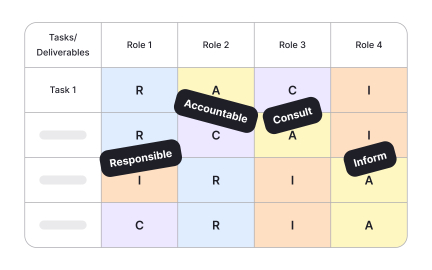Knowledge Sharing
Knowledge sharing is the open transfer of ideas, tools, and practices across teams, promoting faster learning and stronger product decisions.
What is Knowledge Sharing?
Your team constantly reinvents solutions to problems that someone else already solved, or when critical expertise walks out the door with departing employees. You've probably experienced projects that stalled because key information lived only in someone's head, making your organization less efficient and more vulnerable.
Most organizations treat knowledge sharing as an afterthought when it's actually a competitive advantage that can accelerate innovation, reduce errors, and create organizational resilience that scales with growth.
Knowledge sharing is the systematic process of capturing, organizing, and distributing institutional knowledge, expertise, and learning across teams and individuals to improve decision-making, accelerate problem-solving, and build organizational capability that persists beyond individual tenure.
Organizations with effective knowledge sharing practices report 35% faster project completion, 25% reduction in duplicated work, and 40% improvement in new employee productivity. Without systematic knowledge sharing, your team's collective intelligence remains fragmented and underutilized.
Consider how Stack Overflow transformed software development by making programming knowledge easily searchable and accessible. Your organization needs internal systems that make expertise findable when people need it most.
Why Knowledge Sharing Matters for Growing Teams
Your organization loses momentum when experienced team members leave, new hires take months to become productive, and different departments repeatedly solve identical problems because they don't know solutions already exist elsewhere.
The cost of poor knowledge sharing escalates with company growth. You get longer onboarding periods, increased project risks, duplicated efforts, and strategic mistakes that could have been avoided with accessible institutional learning.
What effective knowledge sharing delivers:
Faster decision-making because teams can access relevant experience and data instead of starting research from scratch. Projects move forward with confidence based on documented learnings from similar initiatives.
When someone solved a problem six months ago, that solution should be available to anyone facing the same challenge today. Knowledge sharing turns individual learning into organizational intelligence.
Reduced risk through documented processes, decision rationales, and lessons learned that help teams avoid known pitfalls and build on proven approaches rather than repeating expensive mistakes.
Accelerated innovation when teams can combine existing knowledge in new ways, building on previous work instead of reinventing foundational elements for each new project.
Stronger organizational resilience because critical knowledge exists in accessible systems rather than individual memories, protecting against expertise loss due to turnover or role changes.
Improved employee satisfaction through better onboarding experiences and reduced frustration from hunting for information that should be readily available.
Advanced Knowledge Sharing Strategies
Once you've established basic knowledge sharing foundations, implement sophisticated organizational learning approaches.
Expertise Location Systems: Create searchable directories that help people find internal experts for specific topics, technologies, or markets, facilitating direct knowledge transfer through mentoring and consultation.
Knowledge Graph Approaches: Build interconnected knowledge systems that show relationships between concepts, projects, and expertise, helping teams discover relevant insights they wouldn't find through traditional search.
Community of Practice Development: Foster specialized groups focused on specific domains like technology, customer segments, or methodologies that systematically share knowledge and develop collective expertise.
AI-Enhanced Knowledge Discovery: Implement intelligent systems that proactively surface relevant knowledge based on current projects, roles, or challenges, reducing the burden of active knowledge seeking.
Recommended resources
Courses

Leadership Mastery

Cross-Functional Design & Product Teams

UX Research
Lessons

Share & Collaborate on Figma

User Comments








